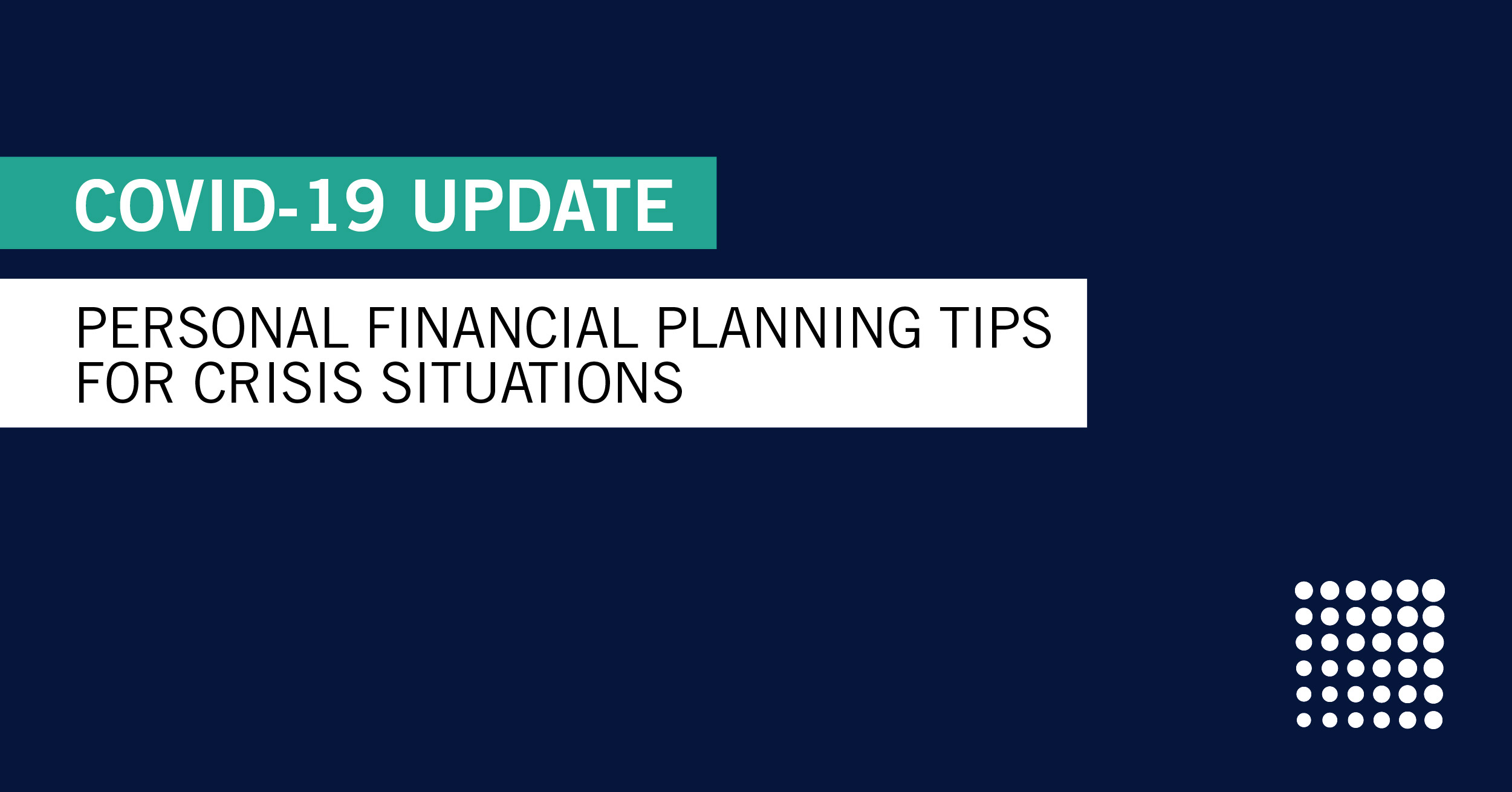What to Do When You’re Hit with an Unexpected Financial Hardship
We are all living in a unique time of economic uncertainly. You likely have concern not only for yourself, but your employees, family and friends. Elective and mandated closures continue all over the U.S., halting business and causing layoffs.
CWA’s commitment for over 35 years has been to educate our community through every stage of life. This “community” is not just our clients or dental professionals, but their colleagues, family, and friends.
Maintaining personal cash flow will be essential during this time. We hope the following suggestions will offer guidance and direction as individuals navigate their own personal situation.
- First and foremost, prioritize expenses. Not all personal expenses are as “vital” as others. Determine which ones are discretionary or can be postponed and work to suspend or cancel those payments until your situation changes.
- Examples of vital and necessary expense should be costs related to you and your family’s well-being; the main ones are food and shelter. Additionally, you may feel things like home internet and cell phones are also critical for you to have, especially to keep you connected and up-to-date in a time of “crisis.”
- Some examples of discretionary, non-essential expenses may include: gym memberships, charitable contributions, health or country club dues, cable television, or other subscription-based programs. Many of these are a small monthly outlay when looked at individually, however they can add up to a considerable amount when you look at the total monthly cash outflow when combined.
- Other considerations: make sure to limit online shopping or entertainment-related expenses during this time. Those are things that should be prevented, in order to get through this period of time.
- Leverage other savings vehicles for certain personal expenses.
- If you have a 529 Plan, consider using that for your children’s K-12 private education or college tuition.
- If you have a Health Savings Plan (HSA), consider using those funds for any medical-related expenses.
- Work with creditors.
- Reach out to lenders to request a loan deferral or leniency in payments – many of them have forbearance programs. It is in their best interest to work with you on helping you make your payments. In our experience, many times, they are willing to work with you if you reach out to them before you miss payments. Make sure to reference the downturn in the economy as the reason you need their help.
- Contact your mortgage company and request a 2-3 month payment deferral. Some lenders will allow you to pay interest-only on those loans and others may allow you to defer the entire payment for that period of time.
- Get in touch with credit card companies to ask for a 30-day payment deferral without interest.
- Tap into cash resources.
- If you have emergency reserves, first use funds from there.
- If you own your home, consider a home equity line of credit.
- Consider taking a loan against your 401(k) plan for a few months’ worth of your family’s non-discretionary personal expenses. The interest rate will be much more reasonable than a credit card.
- Utilize assistance programs.
- Work with your employer and state unemployment agency to determine if you are a candidate for unemployment.
- This could be applicable even in the event of a temporary layoff. Unemployment programs vary state-by-state, so make sure to do the right research on how it applies to your situation.














